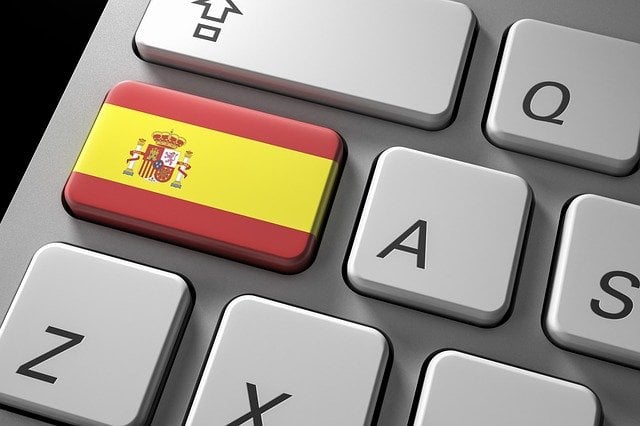Tax cuts and visas: Spain's new law for startups, investors and digital nomads

The Spanish government approved its Startups Law on Friday, which aims to attract startups, foreign investors, and remote workers with special visas and tax incentives. Here's everything you need to know.
The new Startups Law hopes to attract foreign companies by making it easier for startups to choose Spain by giving them tax reductions.
It also aims to entice foreign remote workers and digital nomads to Spain by creating a new special visa for them.
"This law will put Spain at the forefront in the creation of these companies," said Second Vice President and Minister of the Economy, Nadia Calviño, adding that it comes "at a time when there are more and more entrepreneurial digital nomads and investors who can work from anywhere in the world".
Although the law will still have to go through another round of government approval, sources from the Ministry of Economic Affairs indicate that it will finally be passed by summer 2022.
What are the tax breaks for startups and investors?
The proposed law is good news for startups, which will be able to benefit from reduced tax rates.
It will give startups and investors a reduction in Corporation Tax from 25 to 15 percent.
It will also allow remote workers to be able to pay Non-Residents Tax (IRNR). Until now the IRNR was only levied on the income earned in Spain, by both individuals or companies, who are not residents or established in Spain. This means workers and companies who obtain income in Spain, but do not stay for more than 183 days.
The IRNR tax rate for people with annual incomes of up to €600,000 is around 24 percent.
Those who request to submit to this tax regime would have to prove their status as international remote workers.
What are the other advantages for startups and investors?
- New companies will be able to register digitally and will be incorporated within a period from six hours to up to five days.
- The maximum deduction base for investment in newly or recently created companies is raised from €60,000 to €100,000 euros per year and the type of deduction goes from 30 to 50 percent.
- In addition, the period that is considered 'recently created' for eligible companies will go up from 3 to 5 years old. For biotechnology, energy or industrial companies, the bracket is wider: 7 years.
- The Spanish government has added favourable conditions in terms of stocks by raising the tax exemption rate from €12,000 to €50,000 per year for shares or participation invested in new or recent startups.
- Non-resident investors no longer need to get a foreign identification number (NIE). Both they and their representatives need to only now obtain Spanish tax identification numbers (NIF).
In 2015, Spain was ranked among the worst countries to start a business in, so hopes are that the new law will change this.
 Photo: Gino Crescoli from Pixabay
Photo: Gino Crescoli from Pixabay
Who will be able to benefit from this?
The Startups Law is open to anyone from the EU or third countries, as long as they haven't been resident in Spain in the five previous years. It will allow them to gain access to a special visa for up to five years.
This visa will be open to executives and employees of startups, investors, and remote workers, as well as family members.
What about digital nomads and remote workers?
The new law also proposes the creation of a special visa for digital nomads and remote workers who wish to work from Spain.
To be eligible, they will have to prove their status as a remote worker and will also be able to access the visa for up to five years. However, they can't have lived in Spain any time during the five years previously.
Digital nomads and remote workers will also be able to benefit from the same tax reductions as startups by paying the Non-Residents tax rate.
The double contribution to Social Security will also be eliminated for the first three years for those entrepreneurs who simultaneously maintain a job as an employee.
READ ALSO:
Comments
See Also
The new Startups Law hopes to attract foreign companies by making it easier for startups to choose Spain by giving them tax reductions.
It also aims to entice foreign remote workers and digital nomads to Spain by creating a new special visa for them.
"This law will put Spain at the forefront in the creation of these companies," said Second Vice President and Minister of the Economy, Nadia Calviño, adding that it comes "at a time when there are more and more entrepreneurial digital nomads and investors who can work from anywhere in the world".
Although the law will still have to go through another round of government approval, sources from the Ministry of Economic Affairs indicate that it will finally be passed by summer 2022.
What are the tax breaks for startups and investors?
The proposed law is good news for startups, which will be able to benefit from reduced tax rates.
It will give startups and investors a reduction in Corporation Tax from 25 to 15 percent.
It will also allow remote workers to be able to pay Non-Residents Tax (IRNR). Until now the IRNR was only levied on the income earned in Spain, by both individuals or companies, who are not residents or established in Spain. This means workers and companies who obtain income in Spain, but do not stay for more than 183 days.
The IRNR tax rate for people with annual incomes of up to €600,000 is around 24 percent.
Those who request to submit to this tax regime would have to prove their status as international remote workers.
What are the other advantages for startups and investors?
- New companies will be able to register digitally and will be incorporated within a period from six hours to up to five days.
- The maximum deduction base for investment in newly or recently created companies is raised from €60,000 to €100,000 euros per year and the type of deduction goes from 30 to 50 percent.
- In addition, the period that is considered 'recently created' for eligible companies will go up from 3 to 5 years old. For biotechnology, energy or industrial companies, the bracket is wider: 7 years.
- The Spanish government has added favourable conditions in terms of stocks by raising the tax exemption rate from €12,000 to €50,000 per year for shares or participation invested in new or recent startups.
- Non-resident investors no longer need to get a foreign identification number (NIE). Both they and their representatives need to only now obtain Spanish tax identification numbers (NIF).
In 2015, Spain was ranked among the worst countries to start a business in, so hopes are that the new law will change this.
 Photo: Gino Crescoli from Pixabay
Photo: Gino Crescoli from Pixabay
Who will be able to benefit from this?
The Startups Law is open to anyone from the EU or third countries, as long as they haven't been resident in Spain in the five previous years. It will allow them to gain access to a special visa for up to five years.
This visa will be open to executives and employees of startups, investors, and remote workers, as well as family members.
What about digital nomads and remote workers?
The new law also proposes the creation of a special visa for digital nomads and remote workers who wish to work from Spain.
To be eligible, they will have to prove their status as a remote worker and will also be able to access the visa for up to five years. However, they can't have lived in Spain any time during the five years previously.
Digital nomads and remote workers will also be able to benefit from the same tax reductions as startups by paying the Non-Residents tax rate.
The double contribution to Social Security will also be eliminated for the first three years for those entrepreneurs who simultaneously maintain a job as an employee.
READ ALSO:
Join the conversation in our comments section below. Share your own views and experience and if you have a question or suggestion for our journalists then email us at [email protected].
Please keep comments civil, constructive and on topic – and make sure to read our terms of use before getting involved.
Please log in here to leave a comment.